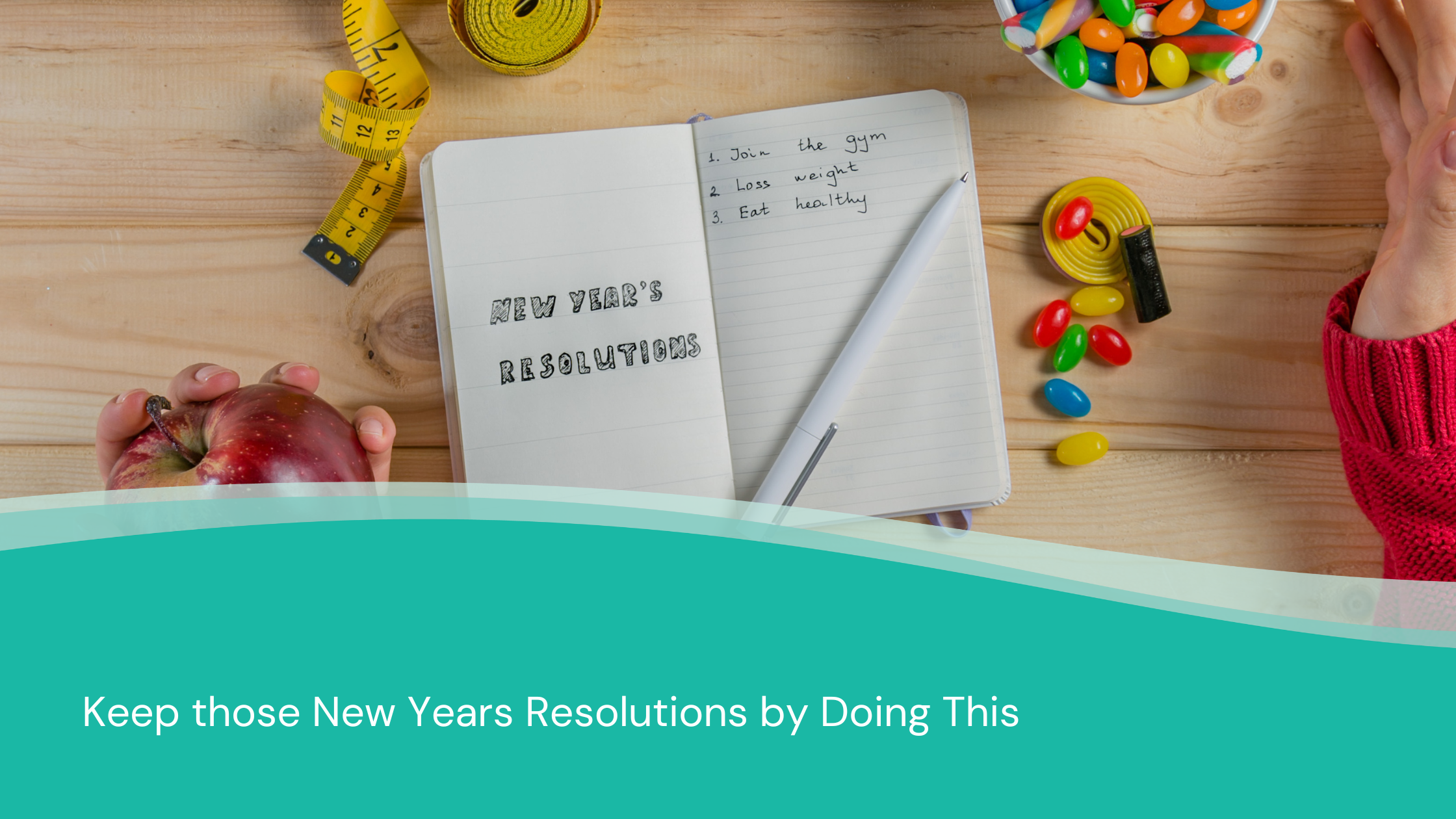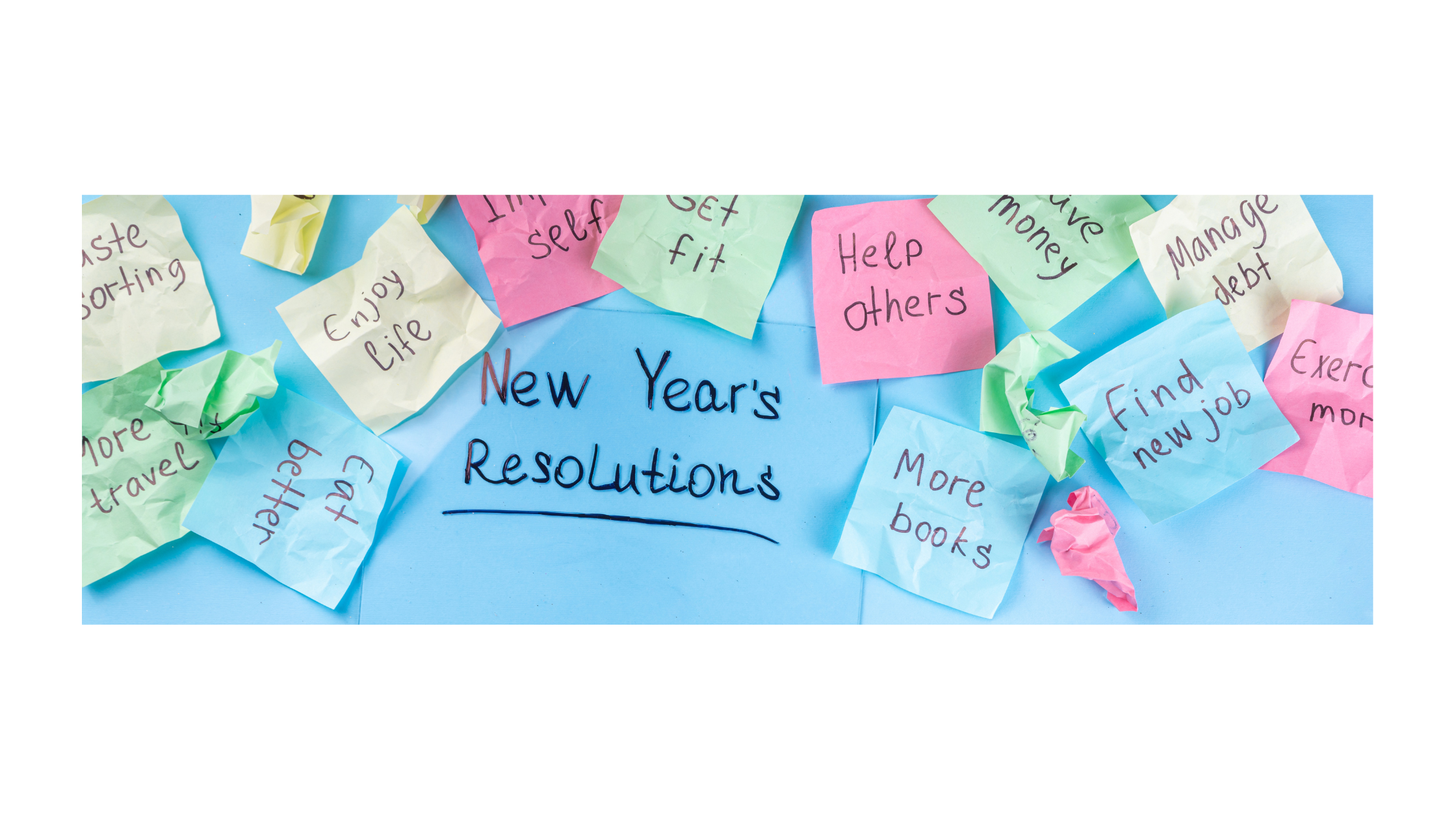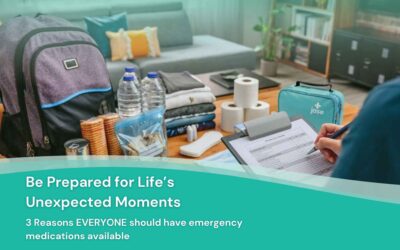When Disaster Strikes, It’s Not Hunger or Thirst That Takes the First Lives In every disaster zone, from hurricanes in the Caribbean to war zones in Ukraine, the pattern is the same. People worry about food and water, but it’s infection that kills first. A small wound...
Keep Those New Years Resolutions by Doing This

The 6 Ps to Success

According to a October 2023 Forbes Health survey of New Years resolutions that 62% of the general population felt pressured to make New Years resolutions. Fitness (48%), finances (38%), improved mental health (36%) and losing weight (34%) were the top resolutions cited for 2024.
Many of these resolutions are thrown by the wayside by the end of January. In fact, January 17th is designated as the unofficial “Ditch New Years resolution day”, a day that many people give up on their resolutions, with the average resolution lasting just 3.74 months. The Forbes survey further revealed that only 8% stick with their goals for one month, 22% last two months and 13% last four months.
New Years resolutions are easy to make, but harder to keep.
Old patterns of life can sneak back into our lives without us realizing it.
Good intentions aren’t enough.
We start with a resolute heart, that this year will be different. However, as we resume our daily lives post holidays, we haven’t established habits that motivate us to push forward and accomplish our goals.
Let’s make this year different.
We have put together a downloadable pdf that will kickstart and motivate you to stay on course.
Download and print this pdf and lets get started. Give yourself at least 30 minutes to prioritize, plan and prepare for your goal.
Prioritize
Under prioritize, write down your 5 most pressing or important goals you want to achieve this year.
Assign them a number- 1-5, 1 being the most important or pressing goal.
As you do this, state why these goals are important and what your desired outcome is.
Example:
Goal-I want to lose 20 pounds by the beginning of summer.
Reason- I will have more energy, fit into summer clothes, and feel better about my appearance.
Number of importance- 1
Do this for each of your goals.
Once you have assigned numbers, it is time to move to:
Plan
Most goals that aren’t met are because of lack of proper planning.
There are 3 parts to planning your goal. The goal must be specific, measurable, and most importantly, realistic.
Take the above example of losing weight:
Specific- lose 20 pounds
Measurable- by beginning of summer
Realistic- Losing 20 pounds over 6 months (by June) is a reasonable and realistic goal
Make as detailed of a plan as possible as to how you wish to accomplish this goal. Leave room for changing tactics but keep the outcome fresh in your mind. Imagine how you will feel reaching this goal. Do this exercise several times during the day. Especially upon arising and right before bed.
If losing weight is your objective, you will need to:
Plan meals- either home cooked or from a restaurant menu.
Home cooked meals will be healthier but require menu planning, grocery shopping and food preparation.
Eating out requires careful planning and deciding beforehand what you are going to order. Otherwise, the smells and atmosphere can cause you to skip your resolution “just this one time”.
Prepare
Planning and preparation go hand in hand. Whether your goal is weight loss, travel, or exercise goals-, proper preparation will set you up for success.
Weight loss could involve weekly weigh-ins and tracking. If your goal is to run a half marathon, proper footwear and setting distance goals to run leading up to the half marathon could be part of your preparation. If travel abroad is your goal, obtaining or renewing your passport well before your trip is necessary.
Position
Positioning yourself for success means having all the tools and systems in place. Go back to reviewing your goals and preparations. Are there any obstacles you see that could keep you from achieving success? If so, how can you mitigate these obstacles?
There will always be obstacles, some we can anticipate and others that we cannot. The most important thing is to have an action plan if your goals go wayside. Being flexible and staying focused on your goal(s) is important. If you go off your diet, are unable to meet your exercise goal, unable to take the trip when you wanted are just a few examples of plans going wayside (which in most likelihood they will at some point).

Persistence
Of all the P’s, persistence is the key to success. If your plans don’t work out the way you want them to, re-evaluate and focus on how you can meet your goal(s). Go back to the plan and preparation exercise and rework your activities until you are able to position yourself for success. Remember, failure is giving up! Discipline and persistence wins the race. Remember the story of the tortoise and the hare? The hare started out far ahead, got distracted and the slow, consistent turtle eventually won. Stay the course. If you get diverted, get back on track. Don’t beat yourself up, use this as a learning experience to help you revise and stay the course.
Progress
Each day, or at the very least, each week reserve time- at least 15 minutes- to review your progress. Focus on what worked, how you could do better and revise as necessary. Keep your goal(s) front and center and remember why you made them in the first place. Spend time visualizing how you will feel once you have reached your goal.
By working through these 6Ps, you will achieve our goals.
Make 2024 your year for positive change. Here is to a healthy and prosperous New Year!
- Brooke Lounsbury, RN
Medical Content Writer
Lifesaving Medications
Everyone should be empowered to care for themselves and their loved ones during the unexpected.
Recent Posts
Keeping you informed and safe.
Medical Readiness: What Really Kills First
Exploring Dr. William Makis’ Hybrid Orthomolecular Cancer Protocol: Focus on Ivermectin and Mebendazole/Fenbendazole
Exploring Dr. William Makis’ Hybrid Orthomolecular Cancer Protocol: Focus on Ivermectin and Mebendazole/Fenbendazole *Disclaimer: This article is for educational purposes and does not constitute medical advice. Always seek professional guidance.* In the evolving...
Be Prepared for Life’s Unexpected Moments
3 Reasons EVERYONE should have emergency medications avaiable. It's all about access—access to medications and care when you need it most. And when things happen outside of your control that access can disappear.Below are 3 examples of how easily this access can be...
Youth Preparedness: Teaching, Building, and Coping with Disasters
Educating and preparing your children ahead of time means fewer surprises in the event of an emergency.Growing Up Prepared: Empowering Youth in Disaster Preparedness As we observe National Preparedness Month, it's crucial to remember that disasters can strike at any...







